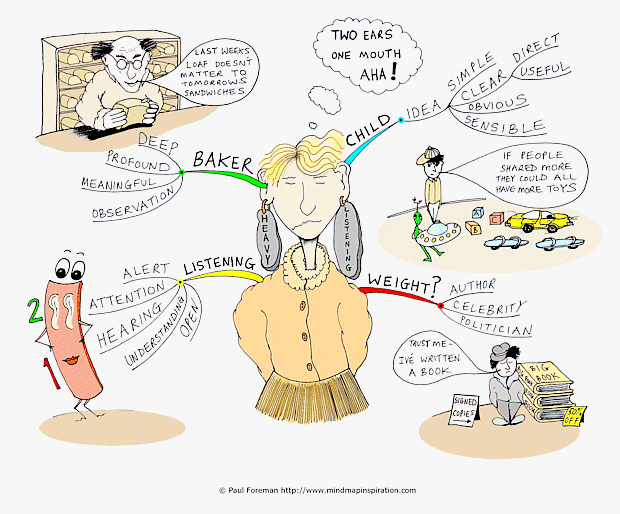What makes people listen?
Imagine your local baker comes up with a deep and profound observation; something really important – something that could change your life or even the entire planet and you miss it and are left with a wholemeal loaf?
If you then meet a famous author outside the shop who uses the exact same words you might listen, you might be impacted, you might tell others.
If a child suggests a really clever idea would you hear it? Hear it and ignore it? Or tell them to be quiet?
What if a celebrity, pop star or politician said the very same thing on the television that afternoon – would the idea suddenly have more impact; would it instantly carry more weight? Do the same words spoken by someone else magically make more sense?
Are some things simply heavy listening? Or do some words carry more weight depending on who speaks them?
Many great ideas are simple. I think the crucial difference is attention. When you heighten your senses you open up your world to the bigger World around you.
What stops us from hearing? I don’t think it is ignorance; I think to an extent we have become overwhelmed by information and choices; who and what to listen to. I think if you trust your instinct something inside you knows when to pay attention. When we truly do listen and more importantly contemplate what is being said and make connections, great ideas come from the most unlikely of sources.
In a way, we are all teachers and learners on a daily basis and everyone has something to offer you and you to them.
Really listening could make a world of difference to you, the planet, everything
Source: http://www.mindmapinspiration.com/heavy-listening-and-words-that-ca...

You need to be a member of Community life competence to add comments!
Join Community life competence